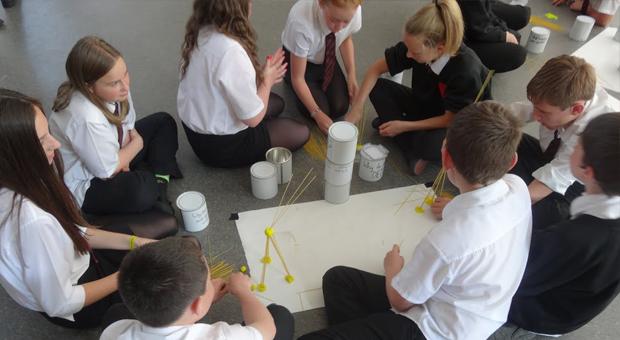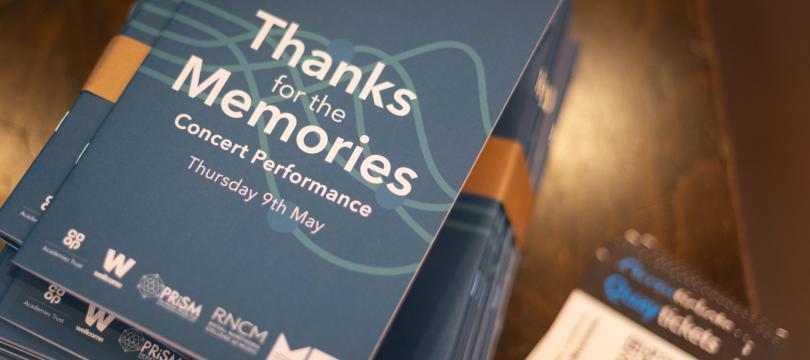What if...?
What if…? demonstrates that trusting and supporting young people to realise their own curiosity and creativity can result in unique and inspirational methods of engagement.

Durham University, Greenfield Community College and Unfolding Theatre
What if…? demonstrates that trusting and supporting young people to realise their own curiosity and creativity can result in unique and inspirational methods of engagement. The project culminated in the development of a live interactive performance piece, produced through collaboration between 20 young people from Greenfield Community College (Newton Aycliffe, County Durham), teachers, theatre makers (Unfolding Theatre) and scientific researchers (Durham University). At its core, was the aim of encouraging young people to explore their own curiosity and provide opportunities to determine their own personal learning journeys. Specifically they were challenged to develop and direct the production of an interactive performance piece aiming to engage and inspire their peers. The resultant content was developed through collaborative work with scientific researchers and creative practitioners. The final performance piece reached over 1000 people in school and community groups.
The project began as a discussion about the fundamental essence of curiosity within science and the arts. We wanted to enable young people to research and investigate their interests and challenged them to ‘report’ their findings creatively, using performance-based techniques to communicate, engage and inspire their peers. We selected year 9 students to work with because the participants needed a level of maturity to manage the responsibility and commitment involved, and year 9 students did not have the same pressures of exams as year’s 10 and 11.
The evaluation highlighted the importance of access to real scientists for young people, particularly in being able to chat informally about careers and interests. It also showed that young people took great pride in their achievements and valued being trusted to direct their own projects. The project also affected all the researchers personally, influencing how they see their research and stimulating reflection. One researcher noted that it is “the most rewarding thing I have ever done,” and several remarked on how refreshing it was to be involved in a project that did not just “plug info into students” but explored their interests. Audiences were also positive about the shows with most becoming more curious and feeling that engaging people in science this way was informative, interesting and effective.
What if...? won the Engaging with Young People award in the NCCPE's Engage Competition 2014.

